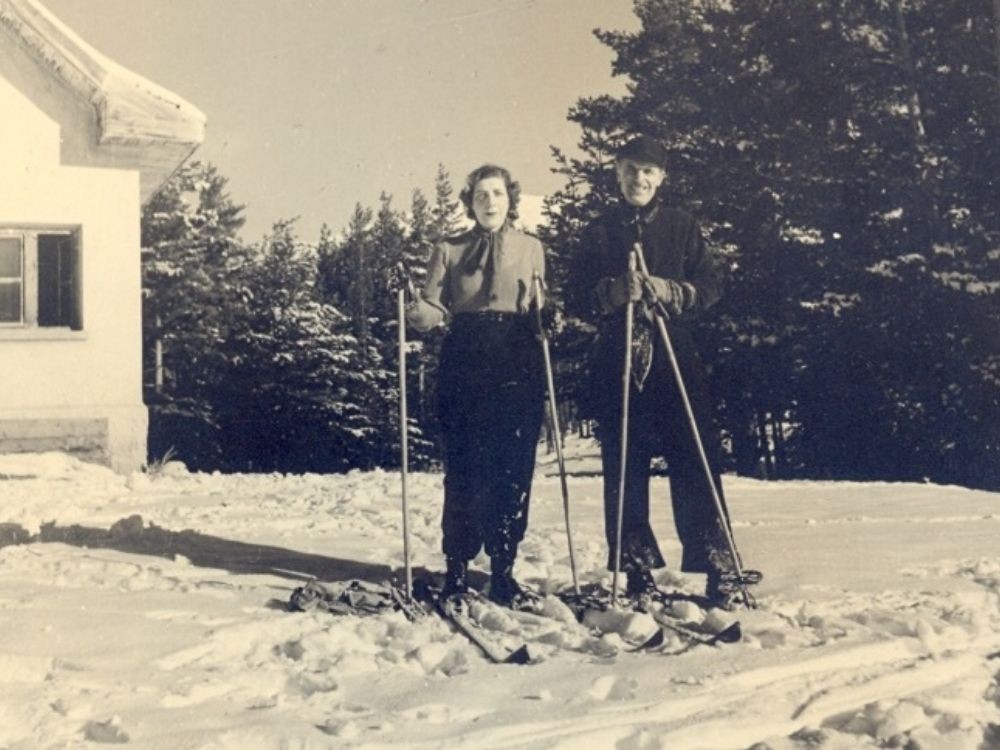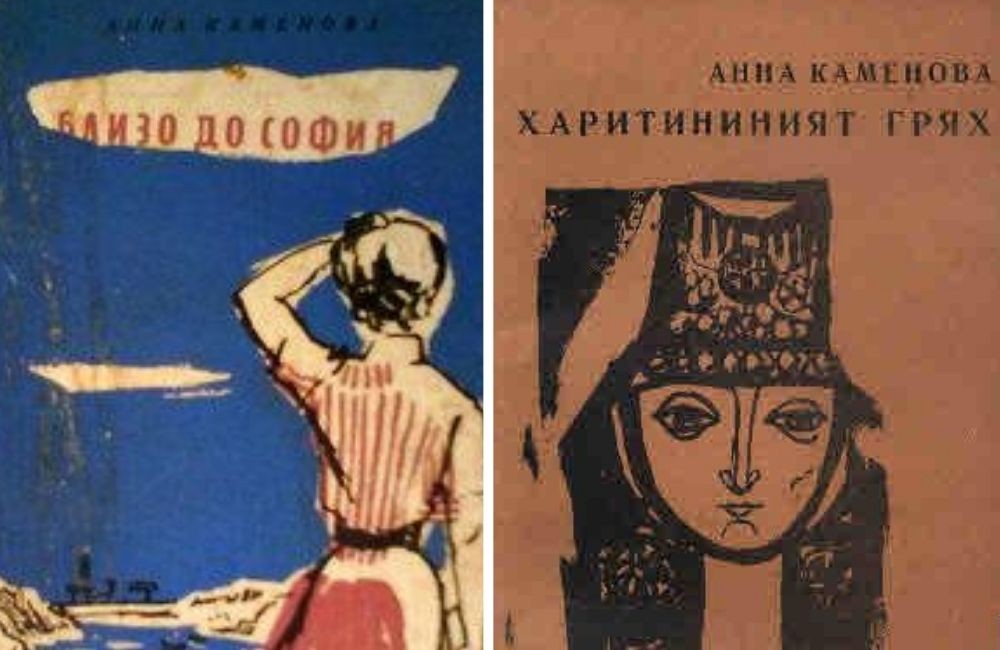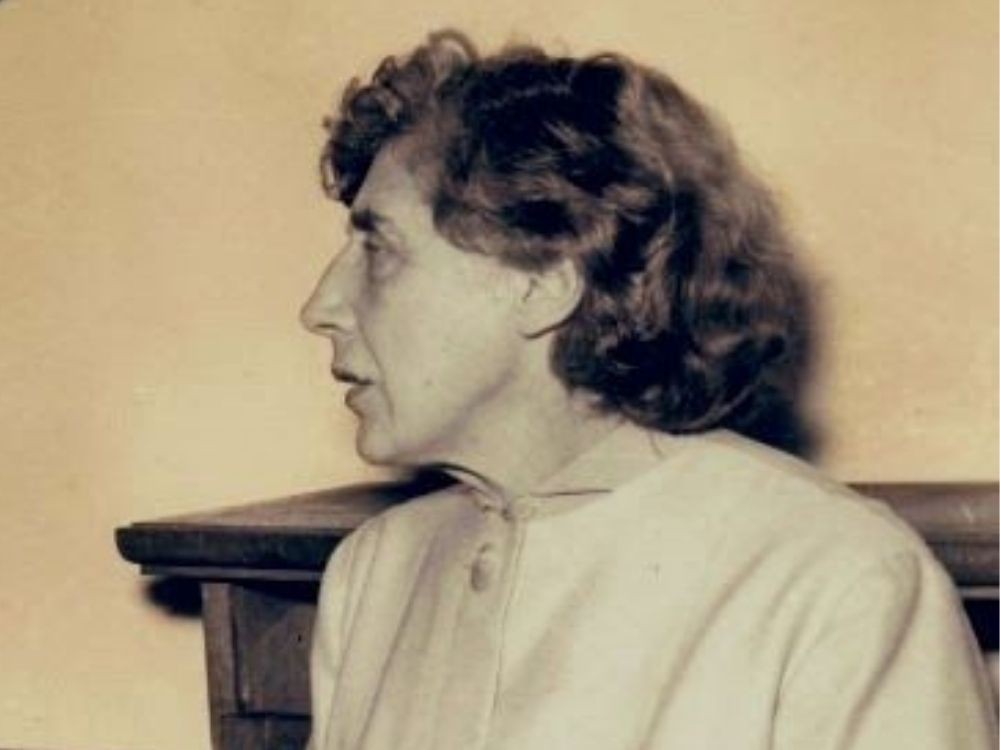Writer Anna Kamenova was born just six years before the end of the revolutionary 19th century – enough to inspire in her a fighting spirit and love of country which accompanied her to her dying breath.
Born in 1894 in Plovdiv, in her early years Anna lived in London and St. Petersburg where her father was minister plenipotentiary. Anna attended literature lectures which opened up her senses to the eternal art.
“I have the advantage of having been brought up surrounded by enlightened men, and each one of them has helped shape me as a person and as an artist,” says Anna Kamenova in an interview preserved in the BNR’s Golden Fund audio library. “We were a very close-knit family. My father’s authority was not stifling, quite the opposite he would help us in our cultural development.”
When “War and peace” was republished, its translator Mihail Madjarov asked his daughter Anna to take a look at some of the passages and make corrections. “It took a lot of nerve, after this introduction to literature, to begin writing myself,” she admits and adds: “But the desire wouldn’t go away and I kept seeing the female characters in world literature over and over again.”
Meanwhile Anna started studying law at Sofia University and there met her future husband – the future prominent public figure and lawyer Petko Staynov who encouraged her to unfold her literary skills as he became aware of her sensibility to the problems of contemporary women.

Anna Kamenova’s debut novel came out in 1930. “The Harinite sin” got a good press – a mature work of literature had been born, a work with an intricate storyline. Two more novels followed, interweaving the psychology of woman with her emotional depths.
As she began to make a name for herself in the profession the writer started getting invitations for conferences and travelled extensively to different countries.

“Travel has always attracted me whether to Iskar dam or to Bombay, no matter,” she says. “The effects of two such journeys may be different, but to me they were equally beneficial and inspiring.”
In a language rich in human character, sensuous and refined, Anna Kamenova described her journey to Bombay with her husband, now a diplomat:

“I felt proud that I, a woman from Bulgaria, was able to walk the endless sands, resist the mountains of water lapping at my feet with a passion. I encountered the outstanding wisdom of an ancient people and the magic of the rock monuments sculpted by the slender hands of these same Indians with a spiritual world so rich, but poor of food and a place to sleep.”
On 10 January, 1944 Anna Kamenova’s life was turned around by a family tragedy. Having sided with the Tripartite Pact in World War II Bulgaria had declared war on USA, which, on its part bombed its capital Sofia. In the bomb raids her mother, her sister and two more relatives lost their lives. Her nephew’s two young daughters were orphaned and were brought up by Anna and Petko.
By the end of her 88-year long life, Anna Kamenova had written novels, short stories, books for children, travel books. She also translated “The Picture of Dorian Gray”, “The wizard of Oz”, “Uncle Tom’s cabin”. And though in her lifetime she received considerable recognition, in our day her work has fallen into oblivion.
Photos: archive and bulgarianhistory.org
The Getty Museum in Los Angeles, USA, is hosting a webinar today entitled Who Were the Thracians? Professor of Classical and Ancient History Matthew Sears will discuss the Thracian legacy and its influence on ancient Athens. Sears is the author of..
The exhibition "Codes of Identity", which opens today in Sofia, presents ancient Bulgarian lineages that have left a lasting legacy. The venue is the National Archaeological Institute with Museum at the Bulgarian Academy of Sciences (NAIM-BAS) In..
June 11, 2007 - US President George W. Bush Jr. visits Sofia. According to protocol, the press conference he held for the media took place among the exhibits of the National Archaeological Museum. The official lunch for the guest was later held at the..
105 years ago, on November 27, 1919, a treaty was signed in the Parisian suburb of Neuilly-sur-Seine, officially ending Bulgaria's..

+359 2 9336 661
